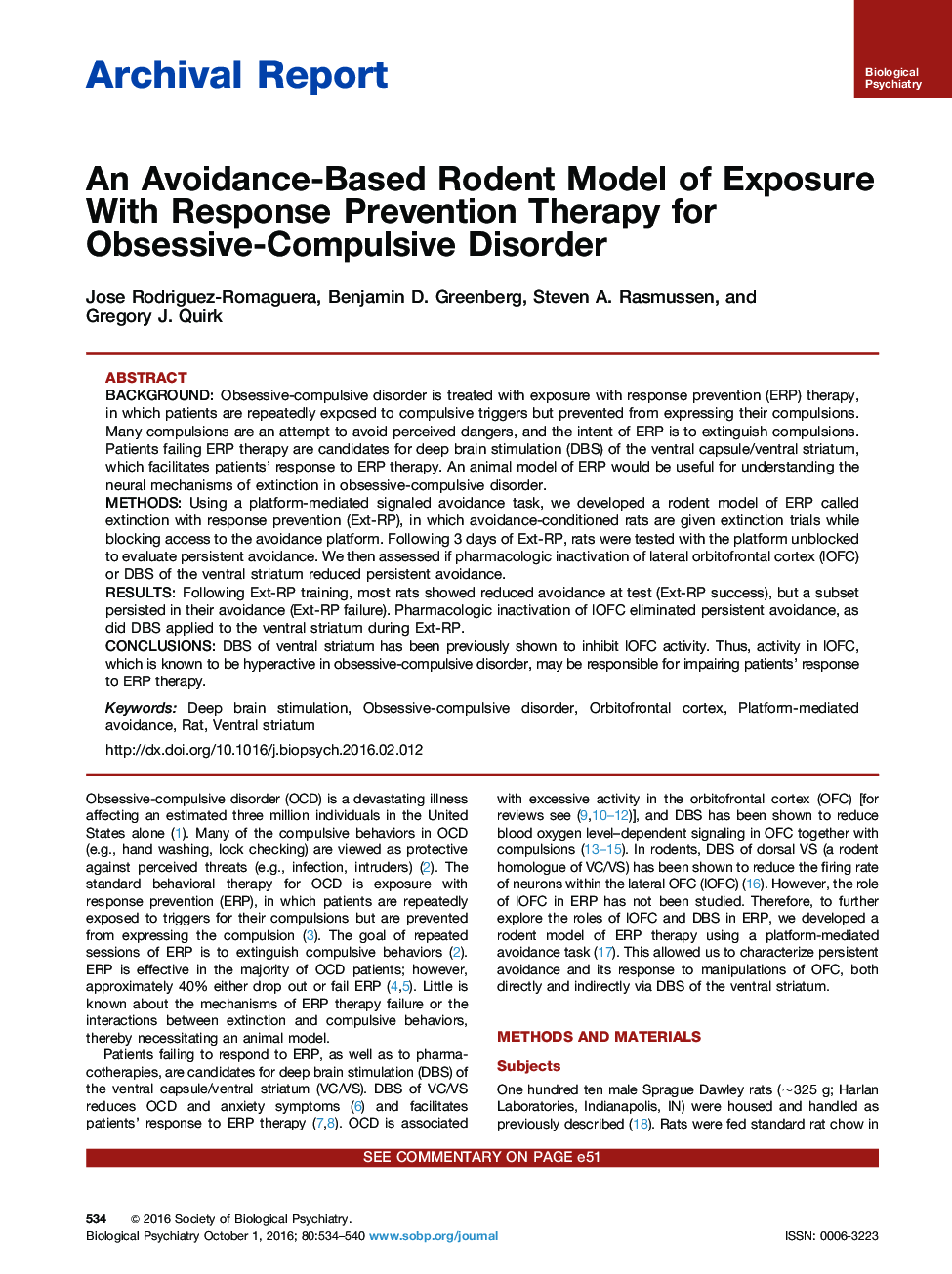| کد مقاله | کد نشریه | سال انتشار | مقاله انگلیسی | نسخه تمام متن |
|---|---|---|---|---|
| 6226241 | 1276375 | 2016 | 7 صفحه PDF | دانلود رایگان |
BackgroundObsessive-compulsive disorder is treated with exposure with response prevention (ERP) therapy, in which patients are repeatedly exposed to compulsive triggers but prevented from expressing their compulsions. Many compulsions are an attempt to avoid perceived dangers, and the intent of ERP is to extinguish compulsions. Patients failing ERP therapy are candidates for deep brain stimulation (DBS) of the ventral capsule/ventral striatum, which facilitates patients' response to ERP therapy. An animal model of ERP would be useful for understanding the neural mechanisms of extinction in obsessive-compulsive disorder.MethodsUsing a platform-mediated signaled avoidance task, we developed a rodent model of ERP called extinction with response prevention (Ext-RP), in which avoidance-conditioned rats are given extinction trials while blocking access to the avoidance platform. Following 3 days of Ext-RP, rats were tested with the platform unblocked to evaluate persistent avoidance. We then assessed if pharmacologic inactivation of lateral orbitofrontal cortex (lOFC) or DBS of the ventral striatum reduced persistent avoidance.ResultsFollowing Ext-RP training, most rats showed reduced avoidance at test (Ext-RP success), but a subset persisted in their avoidance (Ext-RP failure). Pharmacologic inactivation of lOFC eliminated persistent avoidance, as did DBS applied to the ventral striatum during Ext-RP.ConclusionsDBS of ventral striatum has been previously shown to inhibit lOFC activity. Thus, activity in lOFC, which is known to be hyperactive in obsessive-compulsive disorder, may be responsible for impairing patients' response to ERP therapy.
Journal: Biological Psychiatry - Volume 80, Issue 7, 1 October 2016, Pages 534-540
